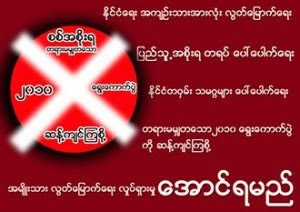Definition of Intervention
Activity undertaken by a state, a group within a state a group of states or international organizations which interferes coercively in the domestic affairs of another state. It is a discrete event having a beginning and an end, and it is aimed at the authority structure of the target state. It is not necessarily lawful or unlawful, but it does break a convention pattern of international relations. (Vicent, 1974: 13)
Arguments
Activity undertaken by a state, a group within a state a group of states or international organizations which interferes coercively in the domestic affairs of another state. It is a discrete event having a beginning and an end, and it is aimed at the authority structure of the target state. It is not necessarily lawful or unlawful, but it does break a convention pattern of international relations. (Vicent, 1974: 13)
Arguments
The majority of international lawyers, restrictionists argue that the prohibition of the use of force in Article 2 (4) of the UN Charter renders forcible humanitarian intervention illegal. The only exception to this general ban is the right of self-defence in Article 51 of the Charter. But the counter-restrictionists argue that there is a legal right of unilateral and collective humanitarian intervention in the society of states. (Nicolas, Wheeler & Alex, 2005: 560)
Exceptions to the non-intervention principle
The international community hs produced a number of conventions setting standards on human rights that go well beyond the proclamation of basic rights. The hard question is whether these standards legitimize action, either by international society as a whole or by states as its agents. Or, to put another way, does a threat to life on the New York subway or in the Sahara desert trigger an international obligation to respond? Is intervention legitimate in these circumstances?
The answer is plainly no in these circumstances. Humanitarian intervention is reserved for extraordinary oppresion, not the day-to-day variety. If a threat to life on the New York subway became the systematic killing of all commuters from New Jersey, or the threat to life in the Sahara dessert reached famine proportions, in which local governments were implicited by failing to meet their responsibilities, then there might fall to the international community a duty of humanitarian intervention. (Vincent, 1986: 126-127)
Exceptions to the non-intervention principle
The international community hs produced a number of conventions setting standards on human rights that go well beyond the proclamation of basic rights. The hard question is whether these standards legitimize action, either by international society as a whole or by states as its agents. Or, to put another way, does a threat to life on the New York subway or in the Sahara desert trigger an international obligation to respond? Is intervention legitimate in these circumstances?
The answer is plainly no in these circumstances. Humanitarian intervention is reserved for extraordinary oppresion, not the day-to-day variety. If a threat to life on the New York subway became the systematic killing of all commuters from New Jersey, or the threat to life in the Sahara dessert reached famine proportions, in which local governments were implicited by failing to meet their responsibilities, then there might fall to the international community a duty of humanitarian intervention. (Vincent, 1986: 126-127)


































